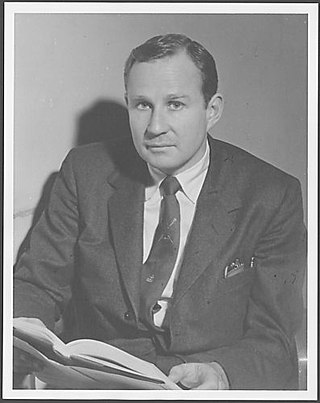Related Research Articles
In metaphilosophy and ethics, metaethics is the study of the nature, scope, and meaning of moral judgment. It is one of the three branches of ethics generally studied by philosophers, the others being normative ethics and applied ethics.
Materialism is a form of philosophical monism which holds that matter is the fundamental substance in nature, and that all things, including mental states and consciousness, are results of material interactions of material things. According to philosophical materialism, mind and consciousness are by-products or epiphenomena of material processes, without which they cannot exist. Materialism directly contrasts with idealism, according to which consciousness is the fundamental substance of nature.

Willard Van Orman Quine was an American philosopher and logician in the analytic tradition, recognized as "one of the most influential philosophers of the twentieth century". From 1930 until his death, Quine was continually affiliated with Harvard University in one way or another, first as a student, then as a professor. He filled the Edgar Pierce Chair of Philosophy at Harvard from 1956 to 1978.

Hilary Whitehall Putnam was an American philosopher, mathematician, and computer scientist, and a major figure in analytic philosophy in the second half of the 20th century. He made significant contributions to philosophy of mind, philosophy of language, philosophy of mathematics, and philosophy of science. Outside philosophy, Putnam contributed to mathematics and computer science. Together with Martin Davis he developed the Davis–Putnam algorithm for the Boolean satisfiability problem and he helped demonstrate the unsolvability of Hilbert's tenth problem.

Pragmatism is a philosophical tradition that considers words and thought as tools and instruments for prediction, problem solving, and action, and rejects the idea that the function of thought is to describe, represent, or mirror reality. Pragmatists contend that most philosophical topics—such as the nature of knowledge, language, concepts, meaning, belief, and science—are all best viewed in terms of their practical uses and successes.

Christine Marion Korsgaard, is an American philosopher who is the Arthur Kingsley Porter Professor of Philosophy Emerita at Harvard University. Her main scholarly interests are in moral philosophy and its history; the relation of issues in moral philosophy to issues in metaphysics, the philosophy of mind, and the theory of personal identity; the theory of personal relationships; and in normativity in general.

John Henry McDowell, FBA is a South African philosopher, formerly a fellow of University College, Oxford, and now university professor at the University of Pittsburgh. Although he has written on metaphysics, epistemology, ancient philosophy, nature, and meta-ethics, McDowell's most influential work has been in the philosophy of mind and philosophy of language. McDowell was one of three recipients of the 2010 Andrew W. Mellon Foundation's Distinguished Achievement Award, and is a Fellow of both the American Academy of Arts & Sciences and the British Academy.

Wilfrid Stalker Sellars was an American philosopher and prominent developer of critical realism, who "revolutionized both the content and the method of philosophy in the United States".

In metaphysics, conceptualism is a theory that explains universality of particulars as conceptualized frameworks situated within the thinking mind. Intermediate between nominalism and realism, the conceptualist view approaches the metaphysical concept of universals from a perspective that denies their presence in particulars outside the mind's perception of them. Conceptualism is anti-realist about abstract objects, just like immanent realism is.

Robert Boyce Brandom is an American philosopher who teaches at the University of Pittsburgh. He works primarily in philosophy of language, philosophy of mind and philosophical logic, and his academic output manifests both systematic and historical interests in these topics. His work has presented "arguably the first fully systematic and technically rigorous attempt to explain the meaning of linguistic items in terms of their socially norm-governed use, thereby also giving a non-representationalist account of the intentionality of thought and the rationality of action as well."
Naturalized epistemology is a collection of philosophic views concerned with the theory of knowledge that emphasize the role of natural scientific methods. This shared emphasis on scientific methods of studying knowledge shifts focus to the empirical processes of knowledge acquisition and away from many traditional philosophical questions. There are noteworthy distinctions within naturalized epistemology. Replacement naturalism maintains that traditional epistemology should be abandoned and replaced with the methodologies of the natural sciences. The general thesis of cooperative naturalism is that traditional epistemology can benefit in its inquiry by using the knowledge we have gained from the cognitive sciences. Substantive naturalism focuses on an asserted equality of facts of knowledge and natural facts.
Neopragmatism, sometimes called post-Deweyan pragmatism, linguistic pragmatism, or analytic pragmatism, is the philosophical tradition that infers that the meaning of words is a result of how they are used, rather than the objects they represent.
Metaphysical naturalism is a philosophical worldview which holds that there is nothing but natural elements, principles, and relations of the kind studied by the natural sciences. Methodological naturalism is a philosophical basis for science, for which metaphysical naturalism provides only one possible ontological foundation. Broadly, the corresponding theological perspective is religious naturalism or spiritual naturalism. More specifically, metaphysical naturalism rejects the supernatural concepts and explanations that are part of many religions.
Mario De Caro is an Italian philosopher, professor of moral philosophy at the University of Rome III in Italy. Since 2000, he has also been teaching at Tufts University, where he is regularly a visiting professor. He is interested in moral philosophy, the free-will controversy, theory of action, history of science, Donald Davidson's and Hilary Putnam's philosophies, and early modern philosophy. With David Macarthur, he has defended a metaphilosohical view called liberal naturalism.

Quietism in philosophy sees the role of philosophy as broadly therapeutic or remedial. Quietist philosophers believe that philosophy has no positive thesis to contribute, but rather that its value is in defusing confusions in the linguistic and conceptual frameworks of other subjects, including non-quietist philosophy. For quietists, advancing knowledge or settling debates is not the job of philosophy, rather philosophy should liberate the mind by diagnosing confusing concepts.
Metaphysics is the branch of philosophy that investigates principles of reality transcending those of any particular science. Cosmology and ontology are traditional branches of metaphysics. It is concerned with explaining the fundamental nature of being and the world. Someone who studies metaphysics can be called either a "metaphysician" or a "metaphysicist".
The following outline is provided as an overview of and topical guide to metaphysics:

In philosophy, naturalism is the idea or belief that only natural laws and forces operate in the universe.
David Macarthur is an Australian philosopher and Professor of Philosophy at the University of Sydney who works primarily on skepticism, metaphysical quietism, pragmatism, liberal naturalism and philosophy of art. He has taken up these and other themes in articles on the philosophy of Stanley Cavell, Hilary Putnam, Richard Rorty and Ludwig Wittgenstein.
Terry P. Pinkard is an American philosopher. He is a University Professor at Georgetown University. His research and teaching focus on the German tradition in philosophy from Kant to the present.
References
- De Caro, M. & Macarthur, D. (eds.), Naturalism in Question (Cambridge, Massachusetts: Harvard University Press, 2004/2008).
- De Caro, M. & Macarthur, D. (eds.), Naturalism and Normativity (New York: Columbia University Press, 2010)
- De Caro, M. & Macarthur, D. (eds.), The Handbook of Liberal Naturalism (London: Routledge, 2022).